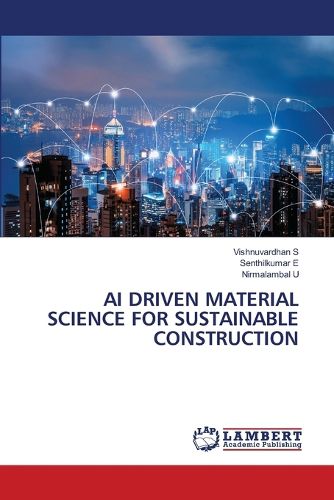Readings Newsletter
Become a Readings Member to make your shopping experience even easier.
Sign in or sign up for free!
You’re not far away from qualifying for FREE standard shipping within Australia
You’ve qualified for FREE standard shipping within Australia
The cart is loading…






Artificial Intelligence (AI) has revolutionized numerous fields, including material science, by enabling faster discovery, enhanced performance evaluation, and optimized material utilization. The construction industry, a critical sector responsible for global infrastructure, is experiencing a paradigm shift as AI-driven material science emerges as a cornerstone for sustainable development. The integration of AI in material science facilitates the design of innovative, eco-friendly materials that enhance durability, efficiency, and environmental sustainability.The traditional approach to material discovery often involves extensive trial-and-error experiments, which can be time-consuming and resource-intensive. AI, with its computational power and advanced algorithms, streamlines this process by predicting material properties, optimizing compositions, and identifying sustainable alternatives. Machine learning models, neural networks, and deep learning techniques enable researchers to analyze vast datasets, recognizing complex patterns that would be difficult to discern through conventional methods.
$9.00 standard shipping within Australia
FREE standard shipping within Australia for orders over $100.00
Express & International shipping calculated at checkout
Artificial Intelligence (AI) has revolutionized numerous fields, including material science, by enabling faster discovery, enhanced performance evaluation, and optimized material utilization. The construction industry, a critical sector responsible for global infrastructure, is experiencing a paradigm shift as AI-driven material science emerges as a cornerstone for sustainable development. The integration of AI in material science facilitates the design of innovative, eco-friendly materials that enhance durability, efficiency, and environmental sustainability.The traditional approach to material discovery often involves extensive trial-and-error experiments, which can be time-consuming and resource-intensive. AI, with its computational power and advanced algorithms, streamlines this process by predicting material properties, optimizing compositions, and identifying sustainable alternatives. Machine learning models, neural networks, and deep learning techniques enable researchers to analyze vast datasets, recognizing complex patterns that would be difficult to discern through conventional methods.